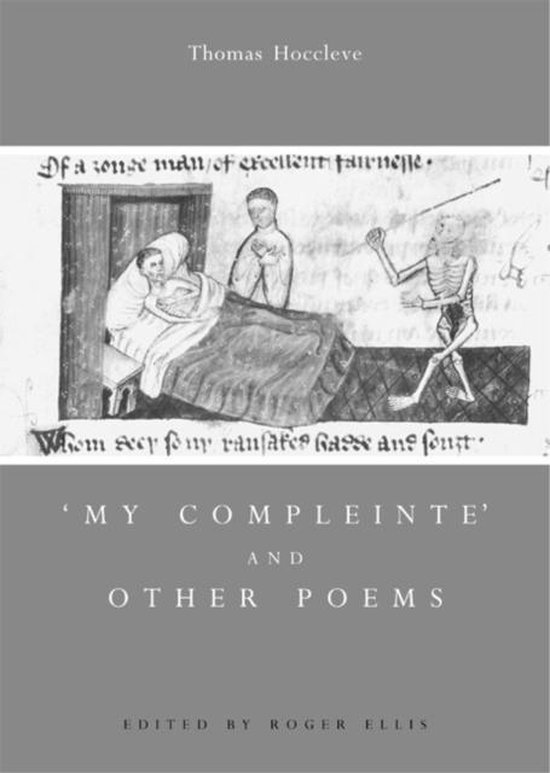The Dialogue with a Friend 1
Contents
The Dialogue with a Friend – Hoccleve..........................................................................................1
Thomas Hoccleve’s Complaint and Dialogue, introduction, pages lvii-lxiii – J. A. Burrow..............4
Last Words, Chapter 2 – Sebastian Sobecki...................................................................................5
Seminar..........................................................................................................................................7
The Dialogue with a Friend – Hoccleve
After Hoccleve ends his Complaint, someone loudly knocks on his door, asking if he is there since it
has been quite a while since the person has seen him. At least for three months! Hoccleve steps out
of his room and greets this person, an old friend of his. He asks what Hoccleve was doing whilst the
friend was knocking, and Hoccleve shows his friend the complaint he wrote. The friend asks if
Hoccleve was planning on spreading this writing, and when he replies in the affirmative the friend
immediately advises against it. He should not remind people of what happened to him, people have
finally forgotten about it! He shouldn’t stir it up again. But Hoccleve says that he knows what people
have said and are saying about him. He thanks the friend for the kind advice, but Hoccleve believes
nobody should be ashamed of being punished by God. He also wants to show the other side of the
story: people kept gossiping about him, so now he wants to tell people the truth. Reminding people
would indeed have been unwise if he had been known as a murderer or robber or another kind of
cheat, but that is not the case. Those are all failings men stir up in themselves, but this illness was
caused by God. Because it is caused by God Hoccleve is bound to declare it, he should not hide this
gift, this miracle in which God’s greatness can be seen.
However, out of all the vices he mentions in the Complaint, there is one that has hurt Hoccleve the
most: his poor money management. Gold, nowadays, is weighed, to prevent counterfeit money. But
some coins (halfpennies) are so thin and light that people refuse to accept them. 1 And those that
make counterfeit coins don’t even get the capital punishment! Even though they should! 2 People
who consent to falsehoods shall be punished just as much as the people who commit falsehoods.
The sin of counterfeiting coins is hurting the king and his loyal subjects. [Hoccleve’s rant against
counterfeit money continues for quite a while].
The friend asks if Hoccleve was planning on adding anything to the Complaint. Yes, he answers, he
was planning on translating a small Latin treatise called Learne for to Die. The moral of that lesson is
that death comes, but no man can know when/where. So Hoccleve hopes to inspire others with this
text and encourage them to examine their conscience, make an account of what he has done in his
life and give his reckoning before he dies. All of this if God allows it, of course. After this project is
finished, Hoccleve will not write anymore. He is 53 after all, so he is growing old; his limbs are weak
and he is getting blind and he can’t think as well as he did previous years. It’s the Wheel of Fortune:
one day you might be on top, the next you’re at the bottom. Every good and fair and precious thing
is like a flower: it has beauty but will be gone in a snap. 3 Everyone will die. Land, riches, gold, honour
1
People mistrust money now since so many counterfeit coins exist, and since you can’t weigh (and therefore
can’t check) such light coins as halfpennies they can’t know if they are counterfeit or real, and therefore don’t
dare to accept them.
2
Hey buddy, maybe calm down on the murder there.
3





